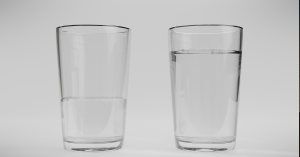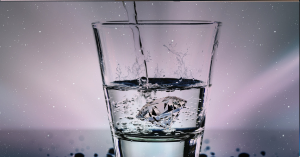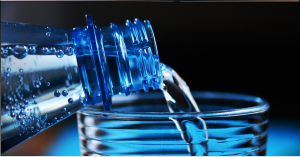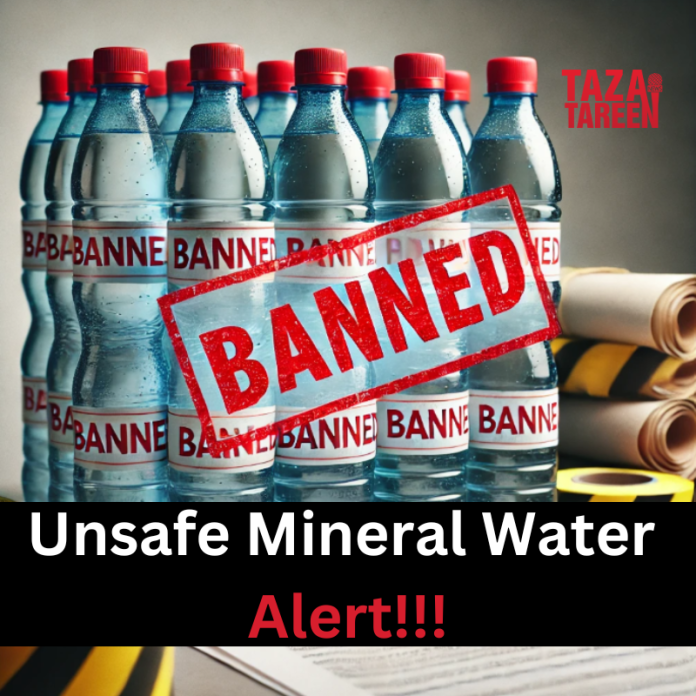The National Assembly released a scandalous report showing 27 local mineral water brands do not meet safety requirements. An announcement made during break-time questions signals increasing public worry about potential safety hazards in bottled water products sold in the market. PCRWR research demonstrates severe inadequacies in both microbiological and chemical quality tests within these mineral water products. Research findings together with regulatory measures and their effects on public health and consumer trust regarding the nation’s water supply form the focus of this article.

The Truth Behind Contaminated Mineral Water
Public health experts consider mineral water safety to be an important issue because many people in the country rely on bottled water. The Ministry of Science and Technology revealed comprehensive findings in front of the National Assembly. Consumer complaints and periodic water quality reports from various sources were escalating. A major quality control assessment took place across Pakistan through the PCRWR per the report findings. The quality check found 27 out of 194 mineral water brands noncompliant with essential chemical and microbiological safety benchmarks during the October to December 2024 sampling period.
The investigative report demonstrated both poor quality outcomes in addition to showing how industry regulation remains insufficient. Some companies which claim to sell mineral water actually bottle unidentified substances instead of producing genuinely purified water.
Findings of the PCRWR Report
The PCRWR report is a wake-up call for both regulatory authorities and consumers. Its key findings include:
-
Sample Analysis: Researchers collected and analyzed 194 bottled mineral water samples from various brands. Among them, 27 brands failed to meet safety standards due to chemical composition issues and microbiological contamination.
-
Chemical and Microbiological Standards: The unsafe brands did not comply with established safety thresholds. The chemical measurements of the water supply exceeded the legal thresholds for pH levels together with mineral content and hazardous substances. Analysis of bacterial contaminants showed widespread bacterial presence in tested water products which created health risks from waterborne infections.
-
Licensing Issues: This report discovered multiple violations regarding licenses. The authorities revoked authorization from two businesses operating without proper mineral water registration. The official notices ordered six businesses involved in illegal mineral water production to make corrections before reducing non-compliance would lead to additional legal consequences.
-
Misleading Practices: Multiple reports documented bottling operations of companies which deceived consumers by using the minimal water label for untreated or poorly purified water products. The misleading labeling technique damages public health as well as consumer trust because it offers false safety guarantees.
Health institution data shows the importance of maintaining open bottling practices and following existing quality control protocols. The lack of quality control at unsafe brands leads to health-threatening situations where people could experience waterborne disease outbreaks and other health problems during prolonged consumption.
Government and Regulatory Response
The response from government authorities has been prompt, though many believe that more stringent actions are needed. During the National Assembly session, representatives from the Ministry of Science and Technology, along with the PCRWR, laid out the specifics of the report and the risks posed by these unsafe brands. Key points of the government response include:
-
Policy Review and Enhancement: The Ministry of Science and Technology has pledged to review the existing policies related to mineral water production and quality control. This review aims to implement more rigorous testing and certification processes to ensure that only water meeting the highest safety standards reaches consumers.
-
Revocation of Licenses: The authorities took immediate action to suspend licenses from business entities discovered breaking regulations. The authorities canceled two company licenses as an effective warning to prevent non-compliance practices in the industry.
-
Issuance of Notices: Corporations producing illegal mineral water have received rules from regulatory bodies to adopt specified corrective actions. Companies that produce illegal mineral water receive official mandates to take prompt corrective measures for product compliance with national safety standards.
-
Public Awareness Campaigns: The government plans to start public awareness programs which will instruct consumers regarding identifying authentic mineral water products and preventing inferior brands. The government recognizes that consumer education remains essential to combat the unsafe product market demand.
-
Enforcement and Monitoring: Additionally the plan includes strengthening both monitoring and enforcement procedures to prevent future quality issues from occurring. The agency will conduct periodic testing and multiple facility inspections to stop additional incidents of quality failures from occurring.

Implications for Consumers
For consumers, the findings of the PCRWR report are a stark reminder to be vigilant about the water they consume. The implications of using unsafe mineral water are significant:
-
Health Risks: Consuming water that does not satisfy chemical and microbiological standards causes various health problems from gastrointestinal symptoms to bacterial infections and lasting health complications from exposure to harmful substances.
-
Loss of Trust: A revelation about deceptive water contents within the industry results in the breakdown of trust from mineral water consumers. The establishment of trust plays an essential role in consumer market operations. The discovery of substitutions in bottled water supplies results in a major deterioration of public trust in the bottled water industry.
-
Economic Impact: The failure to adhere to safety standards not only affects public health but also has economic repercussions. Companies caught producing unsafe water may face legal actions, fines, or even shutdowns.
-
Regulatory Changes: In the long run, stricter regulations may result in increased production costs for water companies as they invest in improved quality control measures. It leads to a slight increase in the price of bottled water.
-
The improved safety and assurance for consumers outweigh the costs. People should verify product authenticity by reviewing certification labels from approved regulatory agencies. Public scrutiny together with pressure from consumers promotes businesses to place quality needs before profits.
The Importance of Quality Water Standards
Water is an essential resource for life, and ensuring its quality is paramount. The current situation with unsafe mineral water brands highlights several critical points:
-
Regulatory Oversight: The case underscores the necessity for robust regulatory frameworks that enforce quality standards consistently. Government agencies and independent bodies must work collaboratively to monitor and ensure compliance.
-
Corporate Responsibility: Companies involved in the production of mineral water have a duty to prioritize consumer health over profits. Transparent manufacturing processes, regular quality checks, and adherence to national and international standards should be non-negotiable.
-
Consumer Rights: At the heart of the issue is the consumer’s right to safe and reliable products. Regulatory bodies must protect this right by imposing strict penalties on violators and ensuring that corrective measures are implemented swiftly.
-
Public Health: Ensuring the safety of mineral water directly contributes to public health. Contaminated water is a major vector for disease transmission, and any compromise on quality can have wide-reaching consequences for community health.
-
Sustainable Practices: The water industry needs companies to practice ethical principles in order to achieve enduring sustainability. Ecoclear Water emphasizes the correct methods of water acquisition coupled with sustainable bottling operations while dedicating resources to technological improvements of product quality and safety.

Future Directions and Recommendations
In light of the findings, experts and consumer rights advocates have offered several recommendations to improve the safety of bottled water in Pakistan:
-
Strengthening Legislation: There is a pressing need to update and enforce stricter legislation regarding water quality standards. This includes mandating regular audits and inspections of production facilities.
-
Consumer Education: Public awareness campaigns which cover all essential information will strengthen consumer abilities to make well-informed purchasing decisions. Consumer education regarding product certification and quality labels minimizes the possibility of choosing dangerous water for purchase.
-
Industry Accountability: Every company must accept accountability for failing to maintain compliance. Companies face potential consequences when they cut production corners through license revocation combined with penalty fees and brand identification with consumer health risks.
-
Research and Development: The essential nature of research funding emerges for enhancing water purification methods alongside quality control procedures. Bottled water safety can be achieved through combined initiatives between academic organizations and governmental bodies alongside private business entities.
Conclusion
The announcement that 27 Pakistani local mineral water brands are unsafe raises significant concerns for regulatory bodies and customers throughout Pakistan. Numerous bottled water companies received unfavorable ratings in the PCRWR report from extensive testing performed during the last quarter of 2024. The series of recent actions starting with license revocation and warning issuance sets the industry onto a correct path yet exposes fundamental problems throughout the industry.
Water customers need to practice careful consumption and request open information from their water supply providers. Such a warning demonstrates why regulatory systems need strong health-security standards that should protect people before allowing business interests to lead regulatory decisions. Government agencies and regulators need to enhance standards enforcement while industry partners must dedicate efforts to ethical practices and water quality elevations.
Frequently Asked Questions (FAQs)
1. How can I check if a bottled water brand is safe?
You can check PCRWR reports, look for quality certifications on the packaging, and avoid unregistered brands.
2. What are the health risks of drinking contaminated bottled water?
Contaminated water can cause gastrointestinal infections, kidney damage, neurological disorders, and weakened immunity.
3. What steps is the government taking to regulate bottled water?
The government is working on stricter regulations, higher fines, and increased inspections to ensure compliance.
4. Are there alternative ways to get safe drinking water?
Yes, you can use water filtration systems, boil water, or purchase from well-known and verified brands.
By staying informed and making careful choices, consumers can protect their health.


